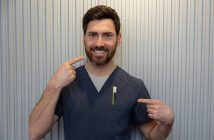The number of students seeking training for medical careers in the United States has risen to incredible heights. However, there is no corresponding increase on the opportunities available in American colleges and universities. As a result, many students who would have made promising careers as doctors are compelled to let go off their dreams and settle for other courses—or none at all—simply because they are unaware of the great opportunities in Caribbean Medical Schools.
It’s easy to think that universities in the Caribbean have just recently began admitting medical students from the U.S in large numbers. On the contrary, it is something that has been going on for the last four decades. The first Caribbean Universities interested in American medical students were established in the late 1970’s. They include American University of the Caribbean, St. George University in Grenada, and the Ross University located in the Commonwealth of Dominica. Since their establishment, more than 60 Caribbean Medical Schools joined them in turning out large numbers of highly qualified and talented medical graduates.
Pre-clinical Years
In the first four or five semesters at a Caribbean Medical University, you will spend your time going through basic science courses similar to those you would go through if you were studying in the U.S. The courses are aimed at preparing you for the United States Licensing Exam (USMLE) Step 1. Passing the exam will in turn enable you to gain entry into clinical semesters.
Clinical Years
Like the basic science courses, the clinical rotations and the fourth year of medical studies in Caribbean Universities are similar to those of medical schools in the United States. The clinical training in the institutions must adhere to strict guidelines, especially in regard to the quality and the location. Moreover, the sub-internships and rotations should be done in hospitals affiliated to the medical schools. The hospitals should also have members of faculties in the appropriate fields.
The Accreditation Council for Graduate Medical Education (ACGME) is the approving authority for the clinical rotations. In addition, it is required that the residency training programs in the rotating specialties be approved. After the third year, the students participate in USMLE Step 2, which examines the students’ clinical knowledge and skills.
Conclusion
Even in the most competitive specialties, Caribbean Medical Schools graduates have a great chance of getting residency positions. However, studying in a reputable school, an exemplary performance on both USMLE Step 1 and 2 and good recommendations letters will go a long way in improving your chances. Remember that the quality of training you gain while in residency is usually more important than the school you have attended. Together with your colleagues back in the U.S, you must apply for the board certification and meet specific requirements in order to get license from the state and begin practicing.




